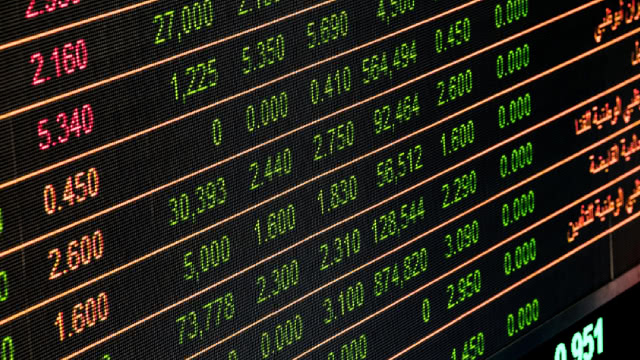The Wall of Worry: Tariffs and Interest Rates Affecting Both Equities and Fixed Income
The financial markets have been facing a significant challenge in the form of two major factors: tariffs and interest rates. These issues are causing concern not just for equities investors, but also for those in the fixed income market.
Tariffs: A Trade War’s Impact
Tariffs, or taxes on imported and exported goods, have been a hot topic in the news lately. The ongoing trade war between the United States and China, as well as other countries, has led to increased tariffs on various goods. This has resulted in a number of negative consequences for investors.
- Higher Prices: With tariffs in place, the cost of goods produced overseas can increase. This can lead to higher prices for consumers, which can in turn lead to decreased demand and lower profits for companies.
- Disrupted Supply Chains: Tariffs can disrupt supply chains, as companies may need to find new sources for goods or face increased costs. This can lead to uncertainty and instability in the markets.
- Economic Slowdown: Tariffs can also lead to a slowdown in economic growth. This can negatively impact both the equities and fixed income markets.
Interest Rates: A Rising Tide
Interest rates are another major concern for investors. The Federal Reserve, the central bank of the United States, has been raising interest rates in an effort to keep inflation in check. This can have a number of effects on the financial markets.
- Higher Costs for Borrowing: With interest rates on the rise, the cost of borrowing money also increases. This can make it more difficult for companies to take on debt and invest in growth opportunities.
- Decreased Demand for Stocks: Higher interest rates can also decrease demand for stocks. This is because stocks, particularly dividend-paying stocks, offer a lower return than bonds when interest rates are high.
- Impact on Fixed Income: The rise in interest rates can also impact the fixed income market. With higher interest rates, the yield on bonds increases, making them more attractive to investors. This can lead to a decrease in demand for existing bonds, causing their prices to fall.
Effect on Individuals
As an individual investor, these factors can have a significant impact on your portfolio. With tariffs leading to higher prices and disrupted supply chains, companies may see lower profits and decreased demand for their products. This can lead to lower stock prices and decreased returns on your investments. Higher interest rates can also make it more difficult for you to invest in stocks, as the cost of borrowing money increases.
Effect on the World
On a larger scale, these factors can have a significant impact on the global economy. The trade war and tariffs can lead to decreased economic growth and instability in financial markets. Higher interest rates can also lead to a decrease in demand for goods and services, as the cost of borrowing money increases. This can lead to job losses and decreased economic activity.
Conclusion
Tariffs and interest rates are two major factors that are causing concern for investors in both the equities and fixed income markets. The ongoing trade war and the rising interest rates can lead to higher prices, disrupted supply chains, decreased demand for stocks, and decreased economic activity. As an individual investor, it’s important to stay informed about these factors and consider how they may impact your portfolio. On a larger scale, these factors can have significant implications for the global economy.
It’s important to remember that while these factors can present challenges, they also present opportunities. As a long-term investor, it’s important to stay focused on your investment goals and maintain a diversified portfolio. With careful planning and a long-term perspective, you can navigate the current market environment and achieve your financial objectives.





